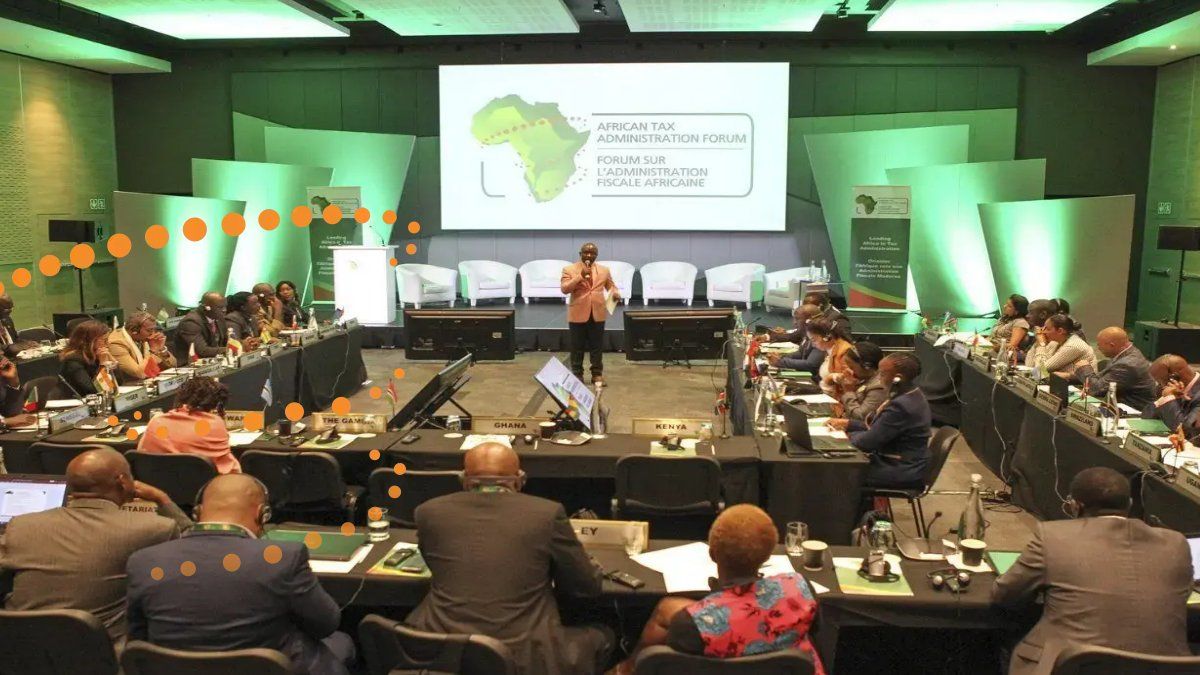‘Tax training exceeded our expectations’ - ATAF Members
ATAF’s Members Somalia, Angola and Mauritius all agreed that the effect of the tax training programme was significant for their tax administrations.

PRETORIA – The African Tax Administration Forum (ATAF)’s Members have reacted to ATAF’s tax training programmes with positivity. Event survey analyses and testimonies from member countries indicate a high appreciation of the training materials, content, and case studies used. Overall, 98% of participants found the training useful.
ATAF’s capacity-building programmes include online and blended courses, short courses and training workshops. The virtual training programmes are conducted via a state-of-the-art virtual platform over a 10-week period. The latter is normally followed by a week-long face-to-face phase, which is temporarily suspended due to COVID-19. Other capacity-building initiatives include training workshops and short courses.
In 2021, approximately 25 training and capacity building engagements were delivered covering areas such as Tax Audit (basic, intermediate, and advanced levels), Investigation, Multilateral Instrument (MLI), Risk, Transfer pricing, VAT Fraud, Revenue Forecasting, leadership, Research methods, BEPs in the mining sector and Tax treaties. While the constraints imposed by COVID-19 made it challenging to hold face-to-face classes, they also contributed positively in increasing the number of participants to ATAF’s training, as the organisation successfully leveraged technology to expand its convening capacity.
As a result, 1 375 participants (563 women and 779 men) from 47 countries were trained in 2021 alone, bringing the total number of officials so far trained by ATAF to 16,000.
As part of its efforts to grow Africa’s pool of experts, ATAF has intensified its use of local expertise in the delivery of its training programmes.
“Our courses are very hands-on and they apply to real scenarios which occur in the African context. It is therefore critical that we maximise the use of home-grown experts who not only have a good grasp of the theoretical concepts involved but also have practical experience of the issues faced by African tax administrations. Growing and using African expertise allows us to do just that”, explains Caroline Mutayabarwa, Training Manager at the ATAF Secretariat.
Judging by the trainees feedback, ATAF’s recipe is a winner.
“This training was as if you people have installed some kind of detector in my brain and henceforth when I am going to come across such issues during tax audit, an alarm will trigger to tell me that this area is risky and needs particular attention. The skills and knowledge acquired during this training is something that will remain with me lifelong”, said Pooja Busgeeth, a trainee from the Mauritius Revenue Authority
“Although it was the first such course, it has exceeded our expectations. We have been provided with two trainers who were knowledgeable, flexible and patient. The fact that training was virtual, made the mode of exchange a bit challenging. The language of instruction was English, and our team’s official language is Somali. Yet, training materials were delivered with concise and clarity”, added another trainee from Somalia.
Overall, 98% of participants to ATAF’s capacity-building programmes have expressed utter satisfaction at the content of these programmes, their delivery and relevance, according to trainee satisfaction survey conducted in November 2021.
During its 11th Country Correspondents Conference held from 17-18 February this year, ATAF announced the overhauling of its training programmes as part of its ambitious New Decade project. Part of the reforms will include the creation of a Tax academy and the regionalisation of training interventions to increase their pertinence even more at membership level. The goal is to equip African tax administrations with the skills and human capacity required for them to become efficient and self-reliant.










